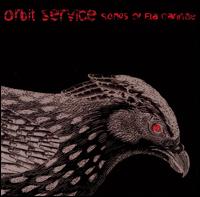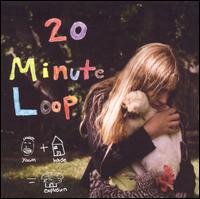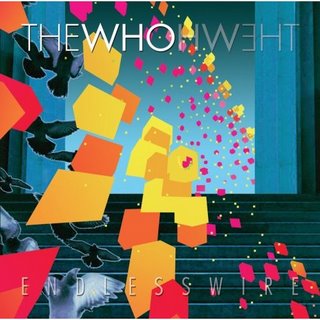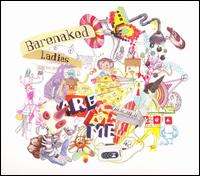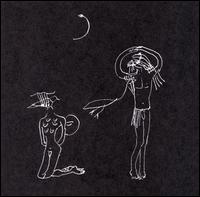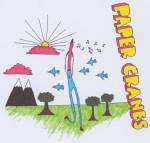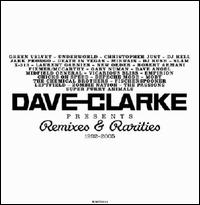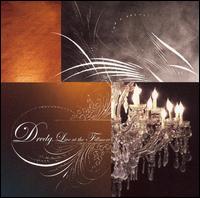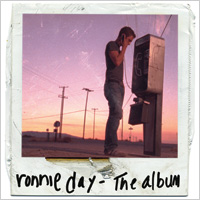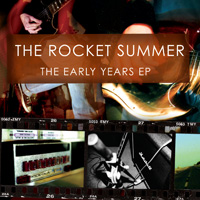
Ask any person outside of Chicago about the city, and you will invariably get a number of similar responses: Al Capone, pizza, gangsters, the Sears Tower, and mobsters. Now ask about Chicago music: blues, jazz, the group Chicago, (and if they’re of the younger variety) The Smashing Pumpkins, and Fall Out Boy. Even to those who live in the city, local music beyond the big names is a bit of a mystery. So how does a local music lover get a grip on just what is going on within the city? Ask those who know best: the bands. What was gained by doing so was a surprising picture of the benefits and harms of a diverse city that offers up so many opportunities and barriers.
"The Chicago scene is booming," says Travis Brown of Split Habit, one of Chicago’s fastest rising post-punk groups. Following in the footsteps of post-punk groups like Lucky Boys Confusion, Alkaline Trio, and Fall Out Boy, Split Habit starts things off with nothing but positive feedback for the Windy City. "[Chicago] has produced some of the greatest bands in the world…it’s responsible for our influences and part of our sound." Split Habit has been enjoying success with Chicago’s teen crowd, who gobble up post-punk acts. "We used those labels to try to fit in with the current craze," says Brown, referring to the punk label placed on Split Habit. Here, then, is one of the worst and most commonly used strategies in Chicago music, the manufactured band. Built on childhood friends and playing sounds that they know money-spending kids want to hear, bands like Split Habit grow quickly from the local scene on fads and "crazes" to quickly leave their hometown behind.
"It’s definitely frustrating," agrees Jason Coffman from the electronic group Anaphylaxis. Coffman and his band are on the other end of the music-business spectrum. Pumping out ambient and electronic sounds, Anaphylaxis receives little credit and has a relatively tiny fan base in comparison to shooting stars like Split Habit. "It seems really fractured, lots of little groups and not a lot of direction," Coffman says. He goes on to say that his band suffers when two or three other shows are going on in the same neighborhood, especially when those other shows are power-punk-players. Bands like Anaphylaxis that have a smaller fan base, especially among music-loving teenagers, rise slower in the music scene, and are constantly coming in second to bigger craze groups. "It’s kind of complaining about too much of a good thing though," finishes Coffman, "there are a ton of great artists here, and there’s something going on somewhere every night of the week."
"Diversity is available," agrees Aaron Keller of ZeroShip, "it’s a place where West Coast, Midwest, and International culture and values can come together in the same room to produce art." ZeroShip is a Split Habit that gets it right. Grown out of the suicide death of former a band member, ZeroShip focuses more on their music, and less on the crowd. "The bands I mention [as influences], I can listen to their full recordings, not just a few songs. They are timeless to me, and that is what I am trying to accomplish with our recordings in ZeroShip," continues band lead Jimmy Peace. Peace has had a celebrated musical career, appearing on MTV and the pages of Rolling Stone magazine, and he is definitely a figure that should be bigger and more prominent than he is now. He remains playing with a local band because there he can focus on his music, and not the business. Still, his opinion of the Chicago scene is low. "It doesn't seem to be around at the moment" he states. Keller elaborates, "Chicago feels a little stale right now. I think people are afraid of taking a chance playing new music. A lot of local acts try to do an LA thing or a British thing. Do your thing!"
"I’d say it was pretentious and assuming," agrees Petticoat leadman Dickie Haydon. Petticoat, a folk-borderline-country group (who does not reside in Chicago but his words apply), has found that the people in the scene where ZeroShip and Split Habit find success have little tolerance for non-punk groups. "There’s hard-core and metal, emo and all that stuff. Stuff that you play when you don’t really know how to play that well," continues Haydon, describing the all-ages crowd. Petticoat has found greater fan bases and more success in playing older-age venues, specifically bars, where teen masses will not be found. "But the bar-scene, the 21 and up scene is really supportive," he shrugs and finishes, "Hey, if I were 15 again, I don’t think I’d like my music, either."
Is the Chicago scene really that polar then? Are there only two choices: flaming success or obscure bar-scene regular? "Not at all," disagrees Dan Perdue of the Chicago group Sleeping At Last. "[Chicago] is nice and quiet…it’s inspiring to be able to see live music so often." Sleeping At Last began in suburban Wheaton, and after a debut release was able to sign with the label Interscope through a chance meeting with Smashing Pumpkins leadman Billy Corgan. The group has major Christian themes running through their music, and subscribes to none of the formulated genres that exist in Chicago. They keep it amazingly local as well, playing "anywhere from church basements, peoples houses, bowling alleys, to clubs in the city." Yet they have still found success. The group has toured nationally with Yellowcard, The Format, and Something Corporate, has just released their third album, and recently made an appearance live on WTTW’s "Chicago Tonight" program. Sleeping At Last is the greatest example of local music that keeps out the pettiness, and obtains success through plain old good music.
there only two choices: flaming success or obscure bar-scene regular? "Not at all," disagrees Dan Perdue of the Chicago group Sleeping At Last. "[Chicago] is nice and quiet…it’s inspiring to be able to see live music so often." Sleeping At Last began in suburban Wheaton, and after a debut release was able to sign with the label Interscope through a chance meeting with Smashing Pumpkins leadman Billy Corgan. The group has major Christian themes running through their music, and subscribes to none of the formulated genres that exist in Chicago. They keep it amazingly local as well, playing "anywhere from church basements, peoples houses, bowling alleys, to clubs in the city." Yet they have still found success. The group has toured nationally with Yellowcard, The Format, and Something Corporate, has just released their third album, and recently made an appearance live on WTTW’s "Chicago Tonight" program. Sleeping At Last is the greatest example of local music that keeps out the pettiness, and obtains success through plain old good music.
No matter what your feelings are on the attitudes of each band, the combination of all them create an invaluable diverse atmosphere. Chicago contains fast-rising fad bands alongside less popular groups, giving something for everyone. The diversity of Chicago music, while agonizing to some, is a boon for the most important people: the listeners. Take your pick of scenes, bands, and attitudes. There’s a plethora of choices for anyone, full of bands that meet your tastes. Chicago is indeed a place where all the influences of the world come together, and while they may clash, the Chicago music scene’s diversity is what makes it one of the best in the world.



